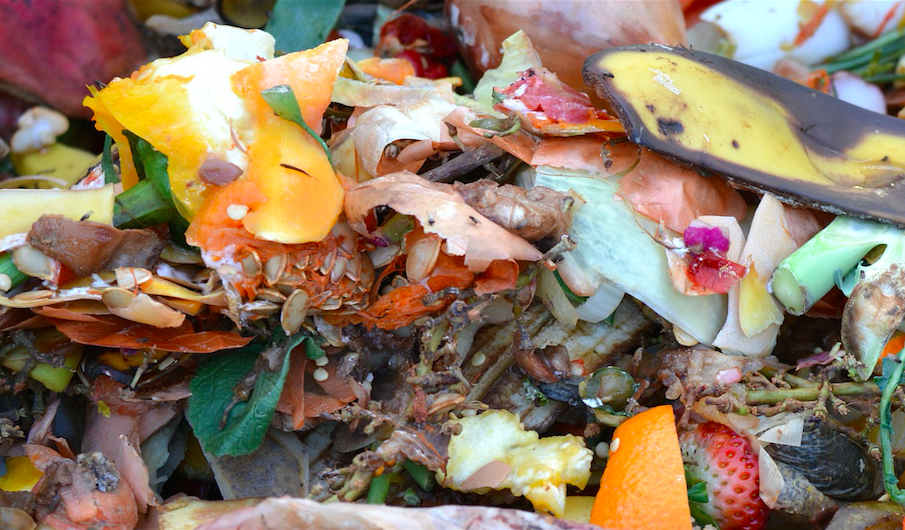With the organics food ban in full swing in Metro Vancouver, it is time to bring some awareness to the global issue of food waste, and offer some ideas on what each person can do to reduce food from ending up in the trash.
Food is one of the most important things in life. In fact, we cannot live without it. Keep in mind that a significant number of people around the world do not have access to adequate healthy food on a daily basis, makes throwing away huge amounts of edible foods seem like a crime.
It is estimated that 1/3 of the food produced for human consumption around the world ends up being discarded, equaling 1.3 billion tons per year. Here in Canada, that food is worth $31 billion dollars according to Ontario based consulting firm Value Chain Management International. So why is it happening and what can we do?
1.Wasting valuable resources
Tossing out edible food doesn’t just mean one less meal for someone, but it also means that money, energy, water, time and physical effort spent to grow and produce it is being wasted. The real cost to producing that food is not factored into the figure above, and is actually more like 3 times the amount.
2.Yikes, this product is about to expire
There is a lack of education concerning the shelf life of products. The best before date, which can be found on all products indicates quality and not safety of foods. Not knowing how long a product is safe to eat makes people unsure about it, and so they consider the best before date as its due date after its expiration the product is no longer consumable.
3. Um, this fruit is ugly
Another reason for food waste is that food has to meet a specific standard concerning its appearance to be bought by the consumer, meaning that the colour, shape and its packaging have to be aesthetically pleasing and without any blemishes. Otherwise the product will be refused and as a result won’t be sold and likely thrown away.
4.Cheap food is easy to throw away
We do not value food enough. In our society, food is relatively cheap and we can get everything we want anytime and everywhere. This simplicity makes us underestimate the effort that has been spent to grow and produce the food and diminishes the value of the food itself. It might seem easier to toss the browning bananas that have been sitting on the counter all week and go to the store to
buy new ones, because peeling, freezing and blending sticky bananas is just too much work.
5. Make soil not trash
Food waste is a valuable resource. Composting can reduce the amount of waste being buried in plastic bags at landfills across the country by 1/3. Capturing this resource and composting it is to make a soil amendment for growing food or for landscaping needs is an absolute necessity. Compost adds nutrients and helps the soil retain moisture, and if applying to lawns, can contribute to controlling run off, fertilizing and improving the health of the soil and grass roots.
Who is setting a good example?
Different solutions to combat food waste have already been undertaken in some countries. In France, reducing the amount of food waste in grocery stores should be realized due to a recently passed law. This law seems to be the most obvious solution consisting of simply banning food waste and making it illegal for grocery stores to throw away edible foods. Instead, the food either has to be donated to charities, turned into animal feed, compost or energy. The new law should help reaching the aim of halving France’s food waste by 2025.
To make people understand that it is not the bright colour or the stereotypical shape of fruits and vegetables that make them taste good, some grocery stores, such as the French supermarket chain Intermarché or the Canadian food retailer Loblaws have started selling “ugly fruits” for a discount. Ugly foods are mainly fruits and vegetables that do not match the norm concerning their colour or shape and as a consequence are often thrown away.
What can each of us do?
Households can avoid or reduce food waste with easy steps such as:
- Planning grocery shopping in advance and only buying as much as needed.
- Storing food in the right way
- Getting educated about the true time and look of its inedibility
It’s up to us to implement those steps into our lifestyle and support businesses that do so to finally reduce and eliminate food waste. By changing our behaviour and realizing the value of the food we daily eat, we will make a huge difference altogether!
References
http://www.secondharvest.ca/hunger-facts
http://www.cbc.ca/news/business/food-waste-costs-canada-31b-a-year-report-says-1.2869708
Photo credit: Pixabay

